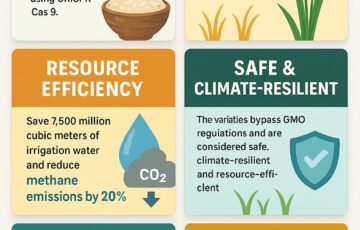Measles Vaccine Averted Millions of Global Deaths
Measles Vaccine Averted Millions of Global Deaths
Why in the News?
A new analysis reveals that measles vaccines have prevented over 9 crore deaths globally in the last 50 years. This success highlights the life-saving role of immunisation, particularly in Africa and Southeast Asia, where measles mortality rates were once alarmingly high. The impact of measles vaccination on global health has been significant, demonstrating the effectiveness of public health strategies in combating infectious diseases and preventing measles epidemics.
Historical Background and Vaccine Development:
- Measles was once extremely widespread—90% of children contracted it 60 years ago.
- Around 25% of symptomatic cases required hospitalisation.
- The breakthrough came in 1963, when John Enders developed the first effective measles vaccine, which later evolved into the MMR vaccine (Measles, Mumps, and Rubella).
- By the 1970s-80s, vaccination efforts scaled globally, especially in richer nations initially. This marked the beginning of widespread childhood vaccination programs aimed at measles prevention and laid the foundation for future immunisation strategies.
Global Impact of Vaccination Campaigns
- Over 9 crore deaths were prevented in the last 50 years, as per recent studies on measles epidemiology.
- The MMR vaccine, which protects against measles, mumps, and rubella, reduces measles risk 20-fold, significantly contributing to herd immunity.
- Hygiene, nutrition, and sanitation helped reduce deaths, but not infection rates, since measles spreads airborne.
- Before vaccines, thousands died annually—hospitalisations and deaths were high even in developed countries like the U.S. This underscores the importance of vaccine effectiveness in preventing measles outbreaks and the need for continued measles treatment and diagnosis efforts.
Regional Success and Institutional Support
- Africa and Southeast Asia had the highest measles mortality rates (5–10%) until the 2000s.
- Expanded Programme on Immunisation (1970s) and Gavi (2000) significantly improved vaccine coverage, playing a crucial role in global health initiatives and immunisation success.
- By the early 2000s, 9 crore children were reached through immunization programs.
- Today, over 100 million infants receive measles vaccines, with Africa saving 2.9 crore lives and Southeast Asia 2 crore lives—making it one of history’s greatest public health achievements.
What is Measles Disease? |
| ● Cause: Measles is a highly contagious viral disease caused by a single-stranded, enveloped RNA virus. |
| ● Classification: It belongs to the genus Morbillivirus in the Paramyxoviridae family. |
| ● Hosts: Humans are the only natural hosts of the measles virus. |
| ● Transmission: Spreads through the air via coughing, sneezing, or breathing by an infected person. Understanding measles transmission is crucial for effective prevention strategies and measles diagnosis. |
| ● Affected Groups: Can infect anyone, but is most common in children. |
| ● Infection Path: Starts in the respiratory tract, then spreads throughout the body. |
| ● Measles Symptoms: High fever, cough, runny nose, and a body-wide rash. |
| ● Risk: Can cause severe complications and even death. Measles complications can include pneumonia and encephalitis, highlighting the importance of prompt measles treatment. |
The success of measles vaccination programs demonstrates the power of immunisation strategies in improving global health outcomes. However, continued efforts in measles surveillance, maintaining high vaccine coverage, and addressing vaccine hesitancy are essential to prevent measles resurgence and work towards measles elimination and eventual eradication.
The MMR vaccine, which protects against measles, mumps, and rubella, has been a cornerstone of childhood vaccination efforts. In some regions, the MMRV vaccine, which also includes protection against varicella (chickenpox), is used. These comprehensive immunization approaches have significantly contributed to reducing the incidence of multiple childhood diseases, including mumps and rubella.
As we celebrate the achievements in measles prevention, it’s crucial to remember that ongoing vigilance and commitment to immunisation programs are necessary to maintain these gains and continue progress towards a world free of measles. Vaccine safety remains a top priority in these efforts, ensuring that the benefits of immunization far outweigh any potential risks.
The global fight against measles serves as a testament to the power of coordinated public health initiatives. By combining effective measles vaccines, robust immunization strategies, and ongoing research into measles treatment and diagnosis, the international community continues to make strides towards measles eradication. This success story not only highlights the importance of vaccination but also provides a blueprint for tackling other infectious diseases on a global scale.






